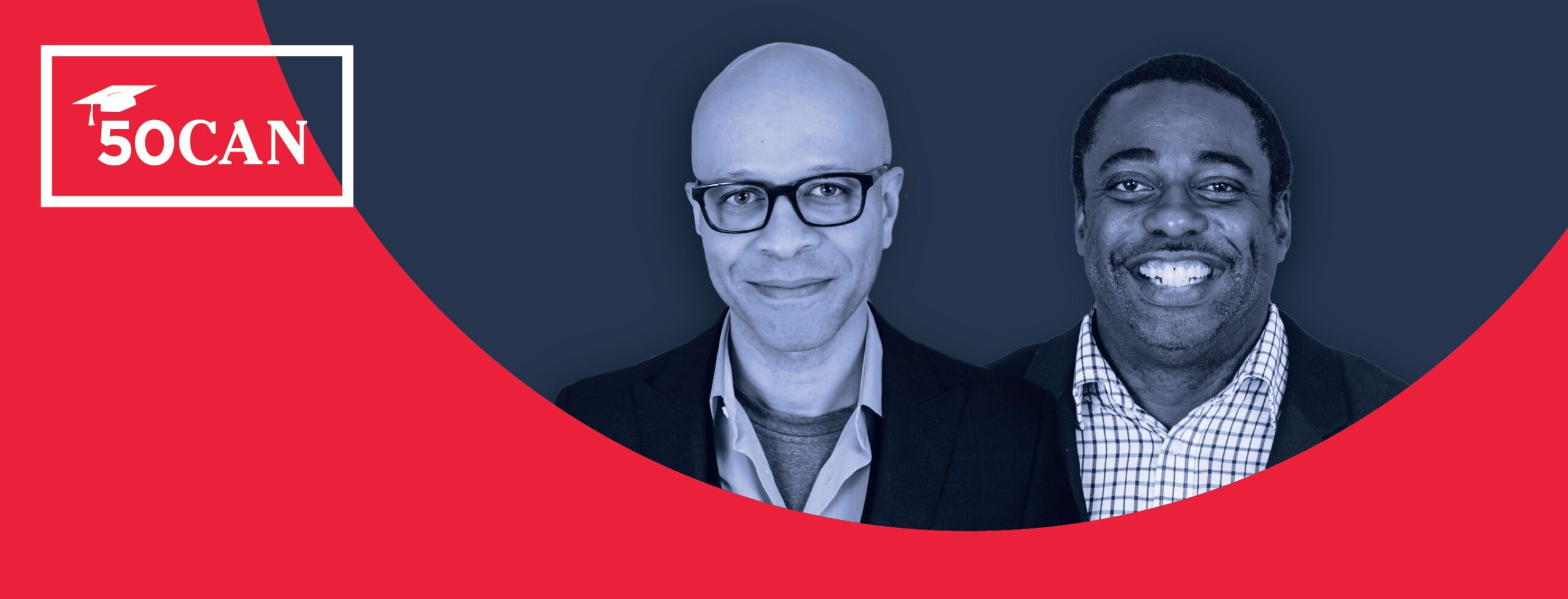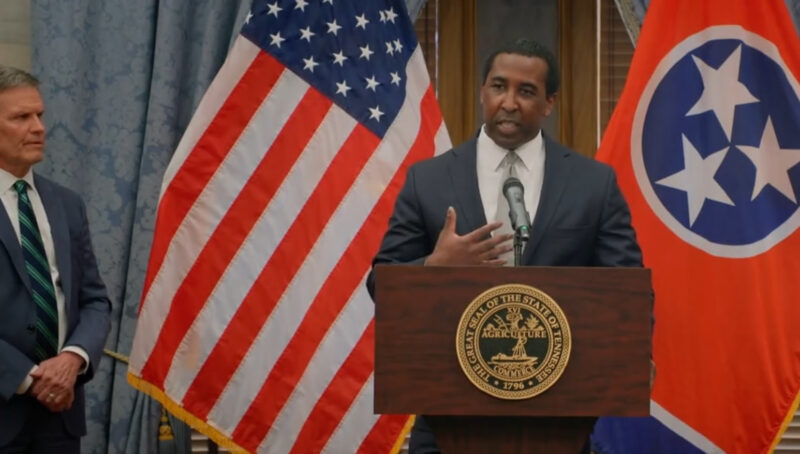Mahatma Gandhi once observed, “Truth never damages a cause that is just.” From our founding in 2011 through our campaigns over the last three years of the pandemic, we have strived to make this principle a core element of both what we advocate for and how we advocate.
That means advocating for an education system that is significantly more transparent in the information provided to parents and American voters. We’ve demanded transparency in how federal funds are being spent, passing legislation and creating tools to ensure parents have access to this information. We’ve argued that parents have a right to know how their children are performing in school. And in our AdvocacyLabs work our CEO, Marc Porter Magee, in collaboration with FutureEd, has made a point of leveraging the internal data from our campaigns to draw lessons about what works and what doesn’t that can benefit advocates across the country.
A key element of this transparency is being clear each year about what we are trying to accomplish in each of our campaigns and providing a straightforward accounting of how we did, including areas where we fell short. What we have found through this process over the past decade is that the change we seek seldom turns on singular, revolutionary moments; rather, the education system of the future is one that will be built bill-by-bill and campaign-by-campaign. Similarly, we also know the importance of studying our losses and reflecting on what will need to shift in the future in order to make further progress. Rarely, we have found, is a loss definitive. On the contrary, we’ve observed time and time again that our losses lay a groundwork that can be built upon for these policies to emerge in the future.
This year, across our network of nine state campaigns, our local advocates achieved 26 policy wins aligned with our Believe in Better policy framework. We also secured significant progress but not full wins on 9 policies and lost on 13 other policy goals.
Even in those areas where we were unable to get legislation across the finish line, we saw how the ground is shifting in favor of fundamental reforms. HawaiiKidsCAN, for example, came up short in securing direct aid for families’ educational and tutoring expenses, but as Executive Director David Miyashiro tells us: “I don’t regret setting that goal in the slightest, even knowing the size of the barriers in this environment. Pursuing this goal has substantially changed the conversation among legislators and the public, and we’re far more likely to have success on this, along with pod and microschool concepts, in the future.”
Below are some of the highlights from 2022, and we are sharing the full list of wins, progress made and losses on our website.
To all of our local advocates and their partners: congratulations from 50CAN on a successful year at a time when our children are most dependent on your advocacy as they recover from the largest educational crisis our country has experienced in my lifetime. I’m proud of what you’ve accomplished and honored to call you all colleagues.
 The education that’s right for you, because every student learns differently.
The education that’s right for you, because every student learns differently.
The future of education puts the decision-making power of where, how and when students will be educated directly in the hands of parents. That means district, charter, private, microschools, learning pods, virtual education, homeschooling and more. These options must be available to all, regardless of where they live, the district boundaries or attendance zones that have been drawn or the wealth of their family.
In 2022, we worked toward this vision by:
-
-
-
- TennesseeCAN passed a landmark bill that fundamentally changed the school funding formula, adding a $750 million total increase and establishing weights for ELL and low-income students as well as students with disabilities. The team also doubled charter facility funding to $32 million.
- CarolinaCAN increased enrollment access in school choice programs by more than 10,000 students through the passage of legislation that expanded opportunity scholarships to more than 70% of families. They also removed the cap that prevented existing high quality charter schools from increasing enrollment.
- GeorgiaCAN expanded the statewide student scholarship tax credit by $20 million and removed the sunset provisions, while also helping to secure $7.5 million for charter school facilities and $4 million for charter school startups.
- NewMexicoKidsCAN supported the establishment of a $10 million revolving loan fund for charter school facilities.
- JerseyCAN made sure that the teacher certification pilot program passed last year was effectively implemented and obtained $10 million of funding for charter facilities.
- DelawareCAN defeated a bill designed to set a moratorium on charter schools in New Castle County.
- TEN Colorado increased the availability of high-quality charter seats through securing a new school approval in Adams County and defeated legislative efforts designed to alter Colorado’s innovation schools approval process.
-
-
 Tutoring and care for every student in every community.
Tutoring and care for every student in every community.
There is significant research showing the positive effects that one-on-one and small group tutoring have on remediating and accelerating learning, particularly when grounded in research-based instruction like the “Science of Reading”. It’s time to make tutoring a core and permanent element of our education system. In addition, every child should also have access to a range of summer learning opportunities and camps, and the opportunity to connect regularly with a caring adult for mental health and wellness services.
In 2022, we worked toward this vision by:
-
-
-
- JerseyCAN secured a $1 million budget appropriation for the NJ Tutoring Corps program.
- GeorgiaCAN’s advocates ensured high-quality tutoring would be expanded to the Columbus school district.
-
-
 A world of open and connected learning, so you have the tools you need to strengthen your community and succeed in life.
A world of open and connected learning, so you have the tools you need to strengthen your community and succeed in life.
The future of education must move beyond the limits of the school building and tap into national and local partnerships with communities, businesses and civic institutions to deliver an interconnected and borderless education where learning happens everywhere.
In 2022, we worked toward this vision by:
-
-
-
- ConnCAN created a number of new pathways for teachers to be certified by establishing a scholarship program, with scholarships of $20,000 for minority teachers, making meaningful progress on both the quality and the diversity of the Connecticut teaching force of the future.
- Despite losses on the passage of legislation, DelawareCAN, HawaiiKidsCAN, TEN Colorado and TennesseeCAN made meaningful progress in shifting the conversation in their states when it came to students receiving credit for learning outside of the classroom and having the funds to participate in a variety of out-of-school learning programs, and expect to pass meaningful legislation over the next few years.
-
-
 A family’s right to know what’s working – it’s all about accountability.
A family’s right to know what’s working – it’s all about accountability.
Greater decentralization of learning must go hand-in-hand with better information for parents so they can make the right choices for their children. That means real-time updates on their children’s progress, clear measures of the quality and effectiveness of programs and dollar-by-dollar reports on the amount of money the government is spending on their child and how that money is being spent.
In 2022, we worked toward this vision by:
-
-
-
- TEN Colorado prioritized ensuring that every Colorado family would receive communications about the extent to which their children are learning by supporting the creation and implementation of an information dashboard for Denver families that includes academic measures and holding the line on accountability measures in the legislature.
- GeorgiaCAN ensured that the Peach State’s system of assessments, accountability and evaluations was preserved and protected.
- TennesseeCAN defended both accountability and student achievement data transparency across the state by stopping efforts to roll back accountability programs.
-
-
 A clear path to the career you choose. It’s about finding your fit and your pathway to a meaningful life.
A clear path to the career you choose. It’s about finding your fit and your pathway to a meaningful life.
The future of education will ensure that every child graduates from high school with a clear path to college or a career by partnering with the business and higher education communities to create new internships, apprenticeships and early-access college courses so that there are multiple paths to success.
In 2022, we worked toward this vision by:
-
-
-
- HawaiiKidsCAN passed legislation to provide $2.6 million of funding to schools when students complete industry-recognized credentialing programs.
- GeorgiaCAN supported an initiative to align career pathways to high demand industries through passing legislation that directs the state to create a list of high-demand jobs for the purpose of informing apprenticeship and career pathways opportunities.
- TEN Colorado and TennesseeCAN removed roadblocks to the establishment of meaningful career pathways and CTE education by expanding concurrent enrollment programs and paid, career internships in Colorado and expanding course access providers in Tennessee to be businesses, nonprofits and individuals in addition to schools.
-
-





